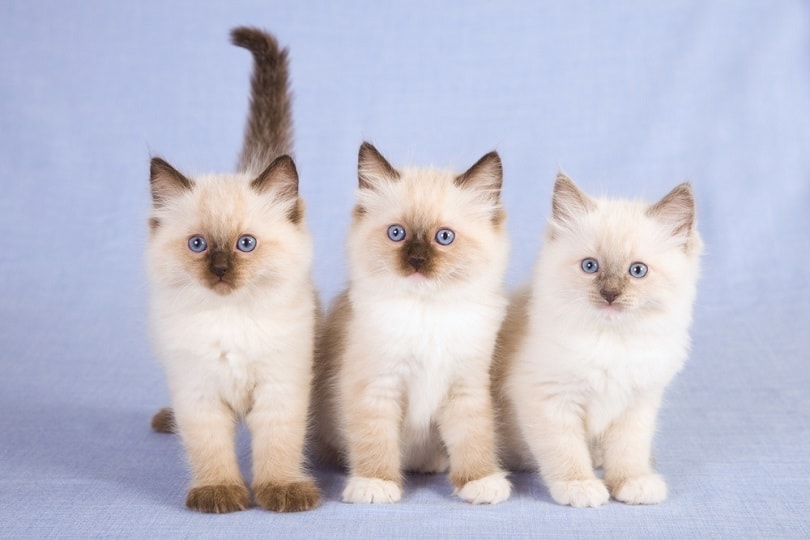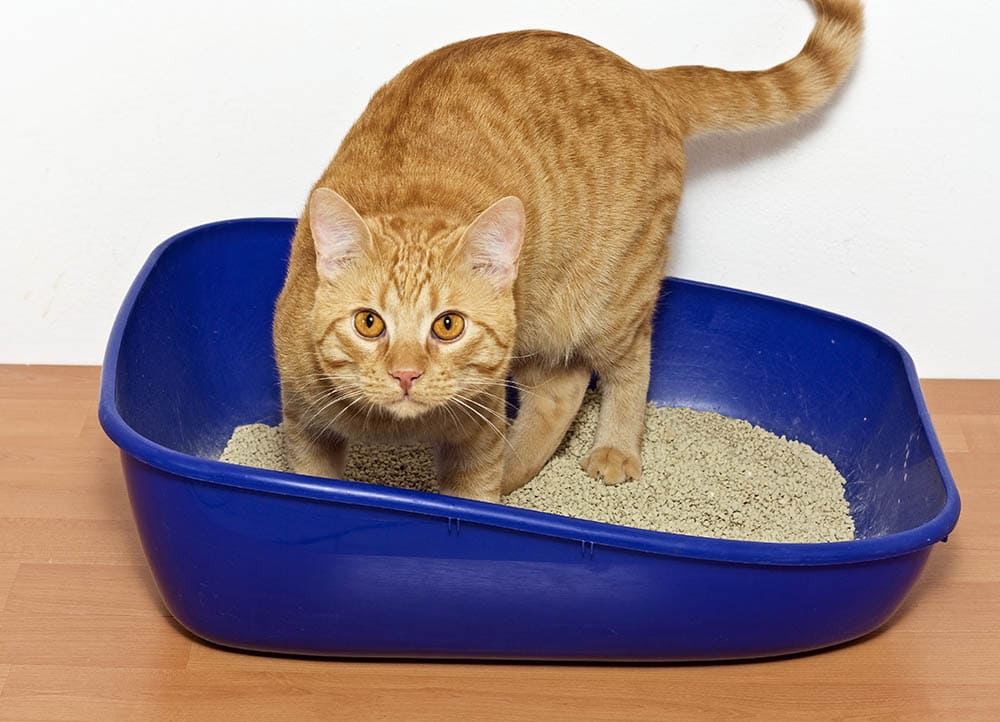Can Cats Eat Toothpaste? Vet-Approved Risks & Dental Care

Updated on
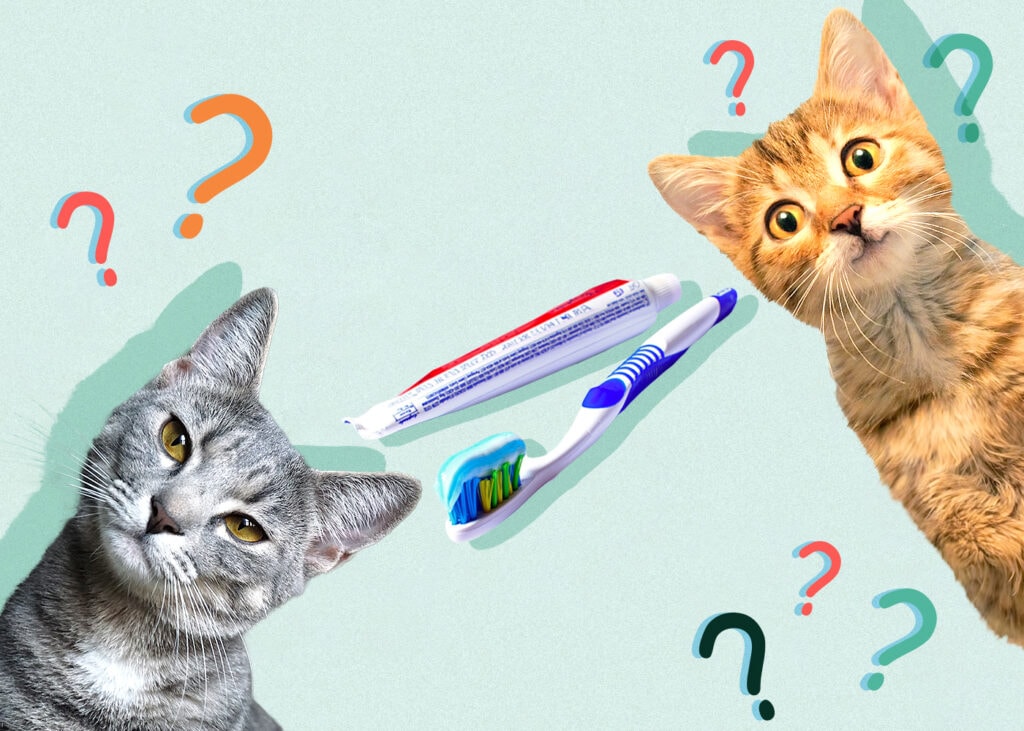
Just like dogs, cats need a good dental routine to keep their teeth and gums healthy and prevent issues like periodontal disease and tooth loss. If you want to care for your cat’s teeth, it’s vital to have a daily routine and use only appropriate cat toothbrushes and toothpaste.
Can cats eat toothpaste? Cat toothpaste is safe for cats, but under no circumstances should cats ever have human toothpaste. The ingredients in human toothpaste, such as fluoride, are highly toxic to cats and can lead to digestive, metabolic, and heart issues.
Why Is Human Toothpaste Poisonous to Cats?
Human toothpaste has fluoride, a naturally occurring mineral that can prevent cavities and improve dental health. The amount of fluoride in toothpaste is generally safe for human consumption.
This mineral isn’t safe for cats, however. Their bodies don’t metabolize it well, so it accumulates over time. The fatal dose of fluoride for cats is between 5–10 mg/kg, but toxic signs can be seen after eating as little as 1 mg/kg. It is important to note that for an average 8-pound cat, the toxic dose would be less than a teaspoon of human toothpaste. Signs of fluoride toxicosis include drooling, vomiting, diarrhea, restlessness, lack of appetite, muscle weakness, trouble breathing, abnormal heart rhythm, and even convulsions.
In addition to fluoride, human toothpaste may have chemicals or additives that are hazardous to cats, such as enzymes that can cause irritation of the tongue and gums.
Some kinds of toothpaste contain xylitol, a natural sugar alcohol that adds a sweet flavor. Xylitol has been proven to be highly toxic to dogs, and while its toxicity in cats doesn’t appear to be the same, it should be avoided.
Since you can find several types of cat-specific toothpaste that are not only safer but more effective, you should only be using cat toothpaste for your kitty’s dental routine.
The Importance of Cat Dental Care
While many people may think that wild cats do not suffer from dental problems thanks to their natural diet, that is not the case. Wild cats can still develop dental problems as well, such as tooth infections or broken or cracked teeth.
As both predators and prey, cats are adept at hiding their pain to avoid appearing weak and vulnerable. This is an evolutionary defense mechanism honed over time, so it doesn’t go away just because a cat is in a safe and loving home. Your cat can be suffering from dental problems or pain without you knowing.
Just as it is for us, preventative dental care is the best way to protect your cat’s oral health. Teeth and gum problems can occur from bacteria, debris, and food particles that stay on the teeth. If it’s not cleaned, the plaque hardens to form tartar, eventually leading to periodontal disease, gingivitis, and tooth loss.
When tartar buildup gets severe, it can lead to serious oral problems that may require tooth extractions to relieve pain and protect the surrounding teeth and gums. In some cases, bacteria from the mouth can enter the bloodstream, damaging vital organs or causing a systemic infection.
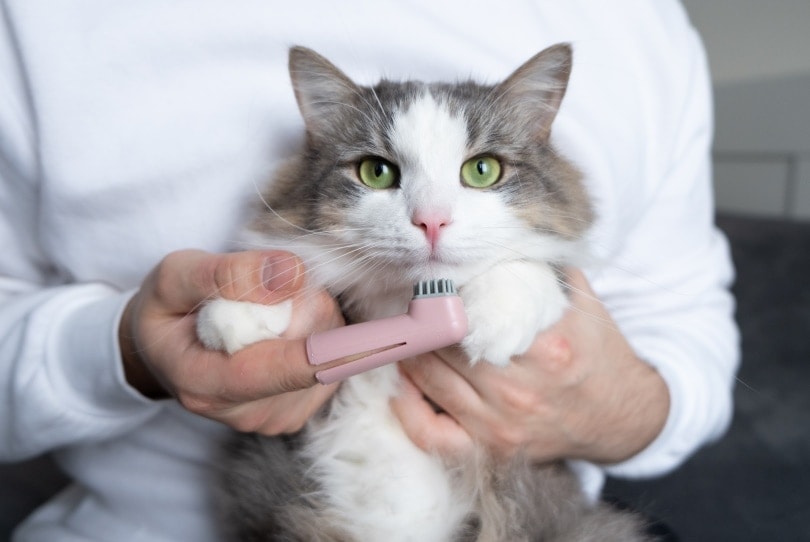
How to Care for Your Cat’s Teeth
If possible, brush your cat’s teeth every day (or as often as you can) with a cat-safe toothpaste and a finger cot. Most pet supply stores and vets offer feline dental kits that have all the tools you need. Take your time and ask for help if you need your vet to demonstrate how to get it done.
Along with brushing your cat’s teeth, you can incorporate other feline dental health products into your routine, such as special treats, water additives, or dental sprays that prevent tartar buildup and remove plaque. These also contain ingredients that are good for your cat’s overall health, such as selenium and taurine.
It may take time to get your cat used to the process, so be patient and persistent. Make it a positive experience for both of you and it can be a great way to bond with your cat. Even if your cat never enjoys getting their teeth brushed, they can learn to tolerate it.
Cats aren’t always good sports about grooming that their owners carry out, especially something like brushing their teeth or examining their mouth. Some cats may adjust over time, but if yours doesn’t, even after trying different techniques and products, you can take them to the vet for a dental cleaning under general anesthetic.
What Does a Healthy Mouth Look Like?
Healthy teeth are clean, whitish, smooth, and free of cracks, chips, or tartar scales. Gums should be light pink and free from redness or bleeding. You should also check your cat’s mouth for swelling, lesions, ulcers, sores, or other strange bumps, which are likely to stand out against healthy, pink gums.
Other indications of tooth or gum problems include difficulty swallowing, drooling, inappetence, pawing at the mouth, and weight loss.
Finally, your cat’s breath should be free from pungent odors. While a cat’s breath is unlikely to ever smell as fresh as yours after brushing, strong odors can indicate an infection in the teeth or gums. Sometimes, the smell of your cat’s breath can indicate a serious health condition. If your cat’s breath smells strong or unusually foul, visit your vet for a checkup.
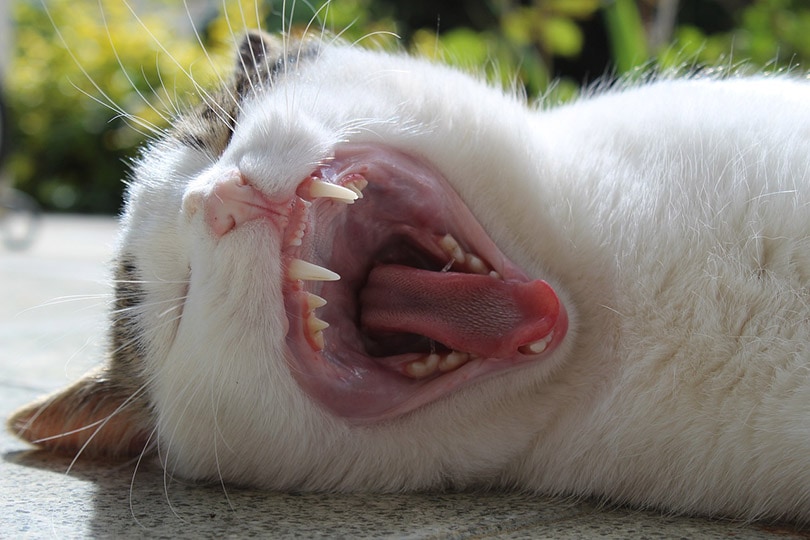
Care for Your Cat’s Oral Health
Cat dental care can be challenging, but preventative measures like brushing your cat’s teeth go a long way toward protecting your cat’s overall health. Be sure to always use cat-safe toothpaste and oral care products, however, and never give your cat human toothpaste, mouthwash, or other human dental products.
Related Reads:
- Can Cats Eat Sesame Seeds? What You Need to Know!
- Can Cats Eat Ranch Dressing? What You Need to Know!
Featured Image Credit: Opal, Pixabay


